Insurance Claims vs. Out-of-Pocket
What you need to know

If a recent fender-bender or single-car accident has you concerned your auto insurance rates will
skyrocket, you might wonder if it's better to pay for repair costs out-of-pocket. According to NerdWallet's
2020 analysis, the national average for car insurance is $1,427 per year, and that's assuming you have a clean
driving record and good credit. While costs will vary based on additional factors, such as where you live,
the kind of car you drive, your age, and driving experience - think years, insurance rates have the
potential to increase after you're in an auto accident.
Before you crack your savings nest egg to pay for accident-related expenses, weigh the benefits
of filing a claim versus covering costs on your own.
- Disclosure: Please keep in mind that this article does not intend to discuss every potential advantage or risk
associated with filing a claim or paying for accident expenses out-of-pocket. Consult with a qualified
insurance professional before making your final decision.
Filing an Insurance Claim
- When you're involved in an accident with another vehicle, you can turn to your policy for
financial protection. The policy can help cover expenses such as property damages and
passenger injuries. It might also cover attorney fees if an accident victim takes you to
court. - You might be able to file a claim without giving your insurance carrier another reason to
raise your rate. Consider details of the accident. Do the estimated repair costs fall within
the at-fault accident surcharge threshold? If so, you might choose to file a claim while
avoiding an insurance rate increase.
For example, let's say you collide with your garage door and cause $800 damage to your
car. If your deductible is $500, the insurance company only needs to pay the $300
balance, which is less than the surcharge threshold.
- It's true that filing a claim could affect premiums and the ability to renew your policy.
Before you panic, consider how many at-fault claims you've submitted in the last three
years. How many were above the surcharge threshold? Numerous claims within a short
time period makes you appear as a high-risk driver. The exact number of claims that
qualify you as "high-risk" will vary by the insurance provider, state, and accident details. - It's easy to confuse filing a claim with reporting an accident. You may still be required to
report an accident, even if you don't file a claim. Failing to report the accident when
you're required to do so could jeopardize policy renewal.
Paying Out-of-Pocket
- If you're in a single-car accident, e.g., bumper meets mailbox, paying for the repairs
yourself could save money. For example, if repair costs total $300, but your collision
deductible is $500, you could save $200 by paying for the repairs yourself. Review your
policy coverage and do the math. - Footing the repair bill yourself could help you avoid a premium increase. The likelihood
of a car insurance rate increase is linked to multiple variables, including your driving
history and accident details. - Attempting to pay out-of-pocket for someone else's repairs might sound like an excellent
idea at first. But, if the other driver later asks for more money than initially agreed or files
a lawsuit, you'll likely be on your own. Your insurer could deny coverage for failing to
report the accident as required by the policy. - Car repairs could end up costing more than estimated. You might regret not filing the
claim if costs exceed the deductible by a significant amount. And, you miss out on the
insurance company negotiating on your behalf.
Speak with a knowledgeable insurance professional before deciding whether to file the claim or
cover the expenses yourself. Since determining the best course of action is often influenced by
multiple variables, an insurance expert might alert you to potential pitfalls of pursuing your
chosen path.



